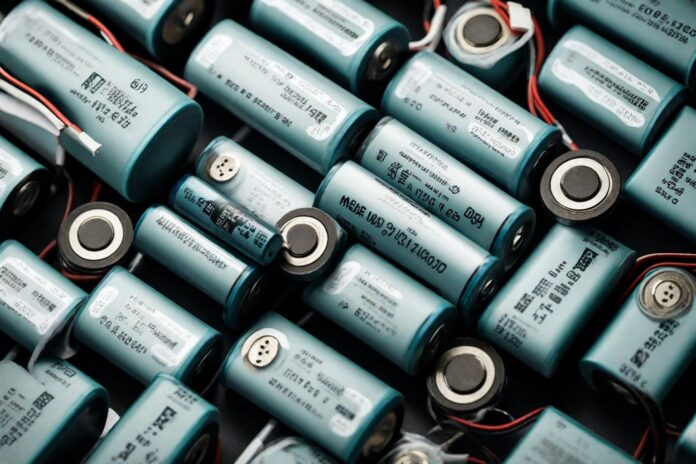Introduction to
In today’s digital age, where electronic devices have become an integral part of our lives, batteries play a crucial role in powering these gadgets. Among the various types of batteries available, the 1.5V battery stands out as one of the most commonly used power sources.

What are 1.5V 1.5v Battery?
1.5V batteries, also known as single-cell batteries, are compact power sources that provide a voltage output of 1.5 volts. These batteries come in various shapes and sizes, catering to the diverse needs of consumers.
Common Types and Sizes
- AA
- AAA
- C
- D
- N
Importance of 1.5V Battery
The significance of 1.5V batteries lies in their widespread use across a multitude of everyday devices, owing to their versatility and compatibility.
Ubiquitous Use in Everyday Devices
From TV remotes to digital cameras, smoke detectors to portable radios, 1.5V batteries power a vast array of consumer electronics, making them indispensable in our daily lives.
Chemistry Behind 1.5V Battery
Understanding the chemistry behind 1.5V battery sheds light on their performance and characteristics.
Alkaline Batteries
Alkaline batteries are the most common type of 1.5V battery, known for their long shelf life and reliable performance.
Zinc-Carbon Batteries
Zinc-carbon batteries, although less efficient than alkaline batteries, are still widely used due to their affordability and availability.
Lithium Batteries
Lithium batteries offer higher energy density and longer life spans, making them ideal for high-drain devices such as digital cameras and handheld gaming consoles.
Applications of 1.5V Battery
The versatility of 1.5V battery makes them suitable for a wide range of applications.
Consumer Electronics
From portable audio players to electronic keyboards, 1.5V battery power numerous consumer electronics, providing convenience and portability.
Remote Controls
TV remotes, gaming controllers, and other remote-operated devices rely on 1.5V batteries for uninterrupted performance.
Advantages of 1.5V Battery
Despite the emergence of alternative power sources, 1.5V batteries continue to offer several advantages.
Long Shelf Life
1.5V batteries have a relatively long shelf life, making them suitable for emergency use and backup power.
Disadvantages of 1.5V Battery
While 1.5V batteries offer many benefits, they also have limitations that consumers should be aware of.
Limited Capacity
Compared to rechargeable batteries, 1.5V batteries have a limited capacity and may need frequent replacement, especially in high-drain devices.
Tips for Extending Battery Life
With proper care and handling, the lifespan of 1.5V batteries can be extended, reducing the frequency of replacements.
Proper Storage
Storing batteries in a cool, dry place can help prevent degradation and maintain their performance over time.
Innovations in 1.5V Battery Technology
Advancements in battery technology continue to improve the performance and efficiency of 1.5V batteries.
Rechargeable Options
Rechargeable 1.5V batteries offer a sustainable alternative to disposable batteries, reducing waste and environmental impact.
Future Outlook of 1.5V Battery
Looking ahead, the future of 1.5V batteries holds promise for further innovation and sustainability.
Sustainable Advancements
Researchers are exploring new materials and manufacturing processes to develop eco-friendly 1.5V batteries with improved performance and recyclability.
Conclusion
In conclusion, 1.5V battery play a crucial role in powering a wide range of electronic devices, offering convenience, versatility, and reliability. Despite their limitations, ongoing advancements in battery technology are paving the way for more sustainable and efficient power solutions.
Unique FAQs
- Can I use different brands of 1.5V batteries interchangeably?
- While it’s generally safe to mix different brands of 1.5V batteries, it’s recommended to use batteries from the same manufacturer for optimal performance.
- Are rechargeable 1.5V batteries worth the investment?
- Rechargeable 1.5V batteries may have a higher upfront cost but can save money in the long run by eliminating the need for frequent replacements.
- How can I dispose of 1.5V batteries responsibly?
- Many communities offer battery recycling programs where you can drop off used batteries for proper disposal. Alternatively, some retailers accept old batteries for recycling.
- What is the typical lifespan of a 1.5V battery?
- The lifespan of a 1.5V battery varies depending on factors such as usage patterns and environmental conditions but typically ranges from a few months to a few years.
- Are there any safety precautions I should take when using 1.5V batteries?
- It’s essential to handle batteries with care and avoid exposing them to extreme temperatures or moisture, as this can affect their performance and safety.
You may like reading about the following: Media Bzy
